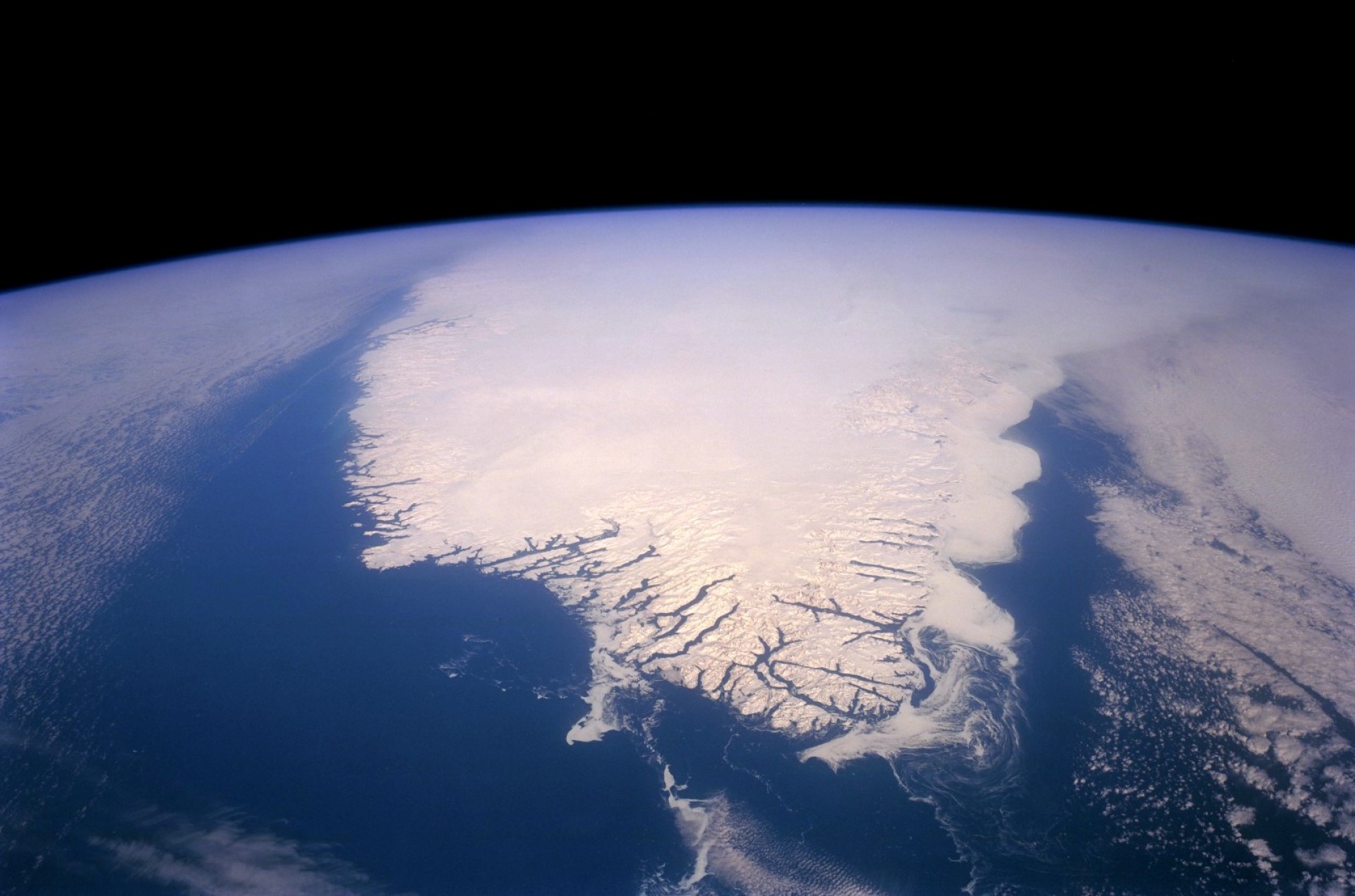
The Greenland ice sheet is melting
The Greenland icesheet is vast, which can bee seen from this image, which had to be taken from space to show the scale.
Greenland is in fact only slightly bigger than Austria, Belgium, Denmark, France, Germany, Ireland, Italy, Poland, Portugal, the Netherlands and the United Kingdom together. Looking at it another way, it is the size of the DRC in Africa, or is 71% of the size of India, and 80% of this vast landscape is covered in ice.
Now we realize the scale of the ice on Greenland, we need to recognize that it is melting. 0.17% of all water on earth is locked up in ice on Greenland. Now, while that does not sound much, remember that the Antarctic ice cap is also melting, though currently far slower, and this consists of 1.56% of global water. If all the ice on Greenland melted, is enough to raise global sea levels by 7 meters, which would be the end of countries like Bangladesh among quite a few more.
So, the Greenland Ice sheet is loosing 30 million tonnes of Ice every hour! How can we put that in perspective? Given that an Olympic swimming pool contains 2500 cubic meters of water, this is the same as 12,000 extra Olympic swimming pools of water in the worlds oceans ever hour or 10 extra swimming pools every 3 seconds. It is not going to run out of water, any time soon, given that it currently has over 2 million cubic kilometres on the island. Never-the-less, this quantity of water hour in, hour out (it is loosing 720 million tonnes of ice per day, or 3/4 of a cubic kilometre every single day.
This is 20% than even researchers had thought, and it is perhaps unsurprising that this vast amount of fresh water being deposited into the ocean every day is having an impact on things like currents – the North atlantic ocean current is the only reason that places like the UK have warmer climates than similar latitudes in Canada.
Greenland has lost 1 trillion tonnes of ice since 1985 since my birth – and this is just from glaciers.
Global warming is happening, and it is happening now. This is not something that you need to be aware that your children will have to face, it is something that we will all have to face in the next few decades.
This shows us: global warming is not something that we avoid and just leave to our children, this is our problem too.











